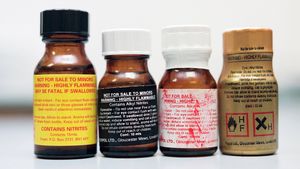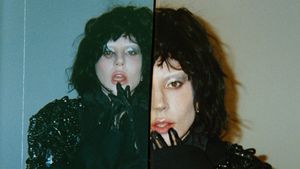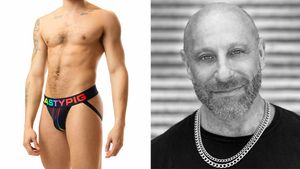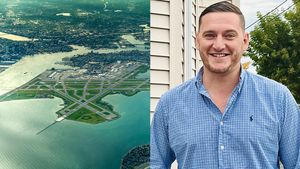I was looking at my schedule for this month and I noticed that Father’s Day is coming up, and we just celebrated Mother’s Day in May. I don’t have my parents anymore, and holidays always bring up a lot of memories of times we spent together. Along with what I learned from them, what I wish I had learned, what was best about our relationship. And, like most people, those questions of why they made some of the choices they made, and thoughts about what they could and should have done differently, come up. It’s just human nature to gaze into that rear view mirror, and to revisit the influence that our parents had on our lives.
Growing into adulthood has given me an opportunity to see the bigger picture. As I established my own life as a grown up, I began to understand what my parents struggled with. Like trying to trying to make financial ends meet. That was always a big one. Raising kids in a time when the values they grew up with were changing. And of course, their own strengths and limitations as humans. As I understood them better as an adult, I was also able to understand the choices they made.
After all, parents are human. Good, bad, imperfect… sometimes terribly damaged.
I hear a lot of stories here about parents and how they treated their children. Some of the stories I hear are just awful. Stories about unspeakable abuse, both physical and emotional. Constant criticism, unpredictable behavior, or complete lack of involvement. Parents who were too troubled themselves to be parents. Some of us have been left with a lot of damage, no doubt about it.
For Better or Worse, They're Your Parents
It seems to me that an important part of growing up is accepting your parents for who they are, or were. I am not saying that coming to this place in your life is without pain. It can be really painful. It might mean accepting that your parents were troubled, damaged people who inflicted pain and suffering on their own children. It might mean accepting that your parents seemed to be focused someplace other than on their children, that their own challenges were so great that they couldn’t quite figure out how to be the parents their children needed. Or maybe they didn’t or couldn’t care. On the other hand, you might be wondering why your parents didn’t spend more time helping you to become the people that they seemed to be. Or maybe you are one of the fortunate ones, and your parents did the best they could and did a pretty good job of things, now that you think about it. The kind of parents many of you are trying to be.
If you are a member of the LGBTQ+ community, your current relationship, and/or past memories, of your parents may also be connect to, or complicated by, your coming out experience.
Parents leave all kinds of legacies. Physical and mental illness may also be passed on from parents to children. So the gifts the give us may not exactly be gifts we would have chosen to receive. Like a chronic condition. Or maybe, why do we all seem to be so depressed in this family?
Whatever you experienced, there is no denying that the homes we grew up in have a big impact on who we are as adults. And that can result in a lot of feelings – proud and happy on one hand; angry, frustrated, ashamed, sad, scared, on the other hand. Probably a mix of feelings.
I often meet with clients who continue to experience conflict with their parents as adults, who continue to expect the impossible from their parents, who want their parents to take care of them in ways that they can’t, or who want validation from parents who can’t or won’t give it, or who want to make their parents acknowledge events from the past that they can’t or won’t acknowledge.
Coming to terms with your childhood is a process. It takes doing some work with yourself, and it might take doing some work with someone who is trained to help you. So what I am giving you is not intended as a formula. Instead, here are some ideas to think about to help you to get a perspective on the role your parents have played in your life.
Understanding. Who were these people who were your parents? Were they both willing and able to be parents? Did one of the disappear on you? What struggles did they have in their own lives, as children and as adults? These are hard questions to ask, and you may not be able to learn many of the answers. But understanding who your parents were – who they weren’t – can help you to begin to understand the impact they had on your life, and why they made the choices that they made.
So consider:
Acknowledgement. You may have fallen into a pattern of blaming your parents for everything that isn’t right in your life, fairly or unfairly. Or you may want only to focus on their better qualities and not on the flaws that all humans have. Or it may just be too painful to think about what must have been going on with them and what they did to you. Coming to terms with your childhood begins with looking at it for what it was, the good, the not so good, maybe even the terrible. And that means acknowledging the role that your parents have played in your life.
And it can also help to acknowledge that people are who they are. That means they may not be willing to change the way they think, feel, or behave. To expect otherwise is to create more frustration and unhappiness for yourself.
Healing. Life happens. Some of it is fair, some of it isn’t fair. Some of it is just plain tragic. But you are not doomed to repeat the lives of your parents. You are not doomed to continue to live with the damage from your childhood. You are not doomed to live the same lifestyle habits and experience the same outcomes as your parents, or to raise your children the way that you were raised. You can choose to move on, to take what you want to take with you, and to leave behind what needs to be left behind. To let go and leave the pain behind. To heal.
Compassion. One of the greatest blessings of having a perspective on the past is coming into yourself. Knowing who YOU are. Without all of the conflict and the anger about the past, and without all of the negative labels you may have picked up along the way. Have compassion for yourself. Give yourself the gentle encouragement that you may not have received from others in the past. Let go of the self-criticism and blame, along with the resentment. Show yourself some compassion. After all, it begins inside. Loving and accepting ourselves helps to heal the damage left by people we needed to love and accept us and who couldn’t.
Possibilities. Some of us learned about possibilities from our parents, some of learned only limitations. Grab on to the responsibility for being the best person possible in the here and now. Turn off the voices of limitation and open yourself up to what is possible in your life. What you can be, what you can do, the people you can have in your life to share it with. I often tell my clients that when they were children, they were only “this high” and they had very few options, if any. Now they are “this high” – a lot taller – and they have a lot more options. Update your view of yourself and what is possible for your life.
Help. Like I said earlier on, getting a perspective on your childhood and the role that your parents played isn’t accomplished in a few easy steps. It is a process and, in some ways, a lifelong process. But that doesn’t mean you won’t see progress along the way, changes that will make your life that much less stressful, more fulfilling. Getting support along the way is the key. People who help to keep you grounded in the present – who you are now – and what’s possible. Talking to a mental health professional can help you to gain a perspective on your childhood experiences, including how you were affected by your parents, and help you to develop some new, and healthier, ways to live your life. Don’t go through this alone.
So… what did we get from our parents? Life! Let’s all make the best of the life we’ve been given!
Gary McClain, PhD, is a therapist, patient advocate, and author in New York City, who specializes in working with individuals diagnosed with chronic and catastrophic medical conditions, their caregivers, and professionals. His website is JustGotDiagnosed.com.
















































































